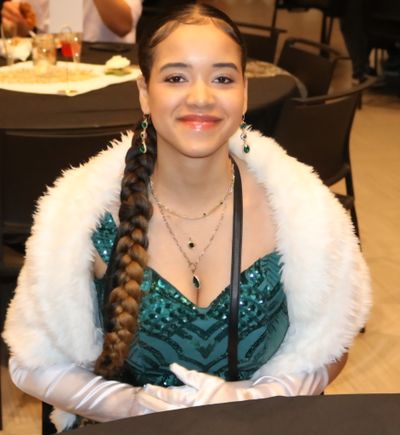One of the most common stereotypes I’ve encountered is the portrayal of the “aggressive Black woman.” I’ve felt this not only through microaggressions from people of different races but within my own community, where colorism plays a role. Because of my lighter skin tone, I’ve dealt with conversations of people assuming I’m quieter or less aggressive compared to darker-skinned girls, which reveals how stereotypes can shift depending on complexion.
These stereotypes can influence relationships. Some Black men will voice a preference for women of other races, often repeating the misconception that Black women are “too aggressive.” What is often overlooked is the distinction between being aggressive and being expressive, assertive, or confident in oneself. When Black women speak up or carry themselves with assurance, those qualities are too often twisted into labels like confrontational or masculine. My personal experiences reflect the larger issue that stereotypes don’t just appear on their own–they’re constantly spread and reinforced, both within and outside the community, especially through media and misrepresentation.
Media Representation and Misrepresentation
TV and film often recycle the same narrow portrayals of Black people. For example, the comedy The Blackening exploits the N-word, depicts Black characters as loud, and repeatedly associates them with drugs and guns–harmful exaggerations that feed old stereotypes.
While mainstream media frequently limits how Black people are represented, social media has created space to challenge those narratives. On platforms like TikTok and Instagram, countless Black graduates, professionals, activists, and influencers highlight their achievements and showcase their creativity. Their presence directly disproves the stereotype that Black people are less intelligent or less educated.
To really understand why these stereotypes exist, we must look back at their roots. False ideas about Black people can be traced to slavery, colonization, and systemic racism. Enslaved people were deliberately portrayed as less intelligent or overly aggressive so oppression would appear “natural” and justified. These myths carried into the Jim Crow era, where laws and media reinforced them. Over time, they became embedded in culture–from shows to film–shaping how Black identity was perceived.
Knowing this history makes it clear that stereotypes were never truths but tools of control and dehumanization. Once we understand this, it becomes easier to challenge stereotypes and highlight stories that show the real diversity and humanity within Black communities. This challenge doesn’t just happen in history books or on social media–it happens in our everyday lives.
In my family and community, there are wide differences in skin tone and speech, but those differences don’t define our worth or identity. The color of our skin holds no weight in who we are. Still, because we are constantly faced with stereotypes and prejudice, we often feel the need to work harder. That determination has made many of us some of the most resilient and intelligent people you will meet.
Society often labels Black people as “loud” or “ghetto,” yet when you look at the facts, recurring patterns of crime and entitlement are more often tied to those with privilege who believe they are above the law–not the Black community. Pointing out these contradictions is part of breaking the cycle.
Knowledge is one of the most powerful tools we have. Leading conversations and educating others can make people aware of the biases they may not even realize they carry. Awareness is the first step toward change, but it can’t stop there. Activism pushes further, rewriting the narrative and forcing people out of ignorance. Because sometimes, breaking harmful cycles requires more than just a gentle conversation–it requires action.
These are some of the most harmful and persistent stereotypes that deserve to be confronted and dismantled:
“Angry/Aggressive Black Woman” – Misinterprets assertiveness as hostility.
“Absent Black Father” – Ignores data showing many Black fathers are highly involved in their children’s lives.
“Criminal or Gang-Associated” – Unfairly links Black men and youth to violence and crime.
“Uneducated or Unintelligent” – Erases the achievements and educational successes of Black communities.
“Welfare-Dependent/Lazy” – Falsely suggests a lack of work ethic while ignoring systemic economic barriers.
“Oversexualized Black Woman or Man” – Reduces individuals to harmful caricatures rooted in slavery-era propaganda.
“Athlete/Entertainer Only” – Limits Black success to sports or entertainment, overlooking excellence in every field.
“Light Skin vs. Dark Skin Hierarchy” – Perpetuates colorism and division within the community.
Challenging these stereotypes requires honest dialogue, education, and a commitment to celebrating the full humanity and diversity of Black experiences.
